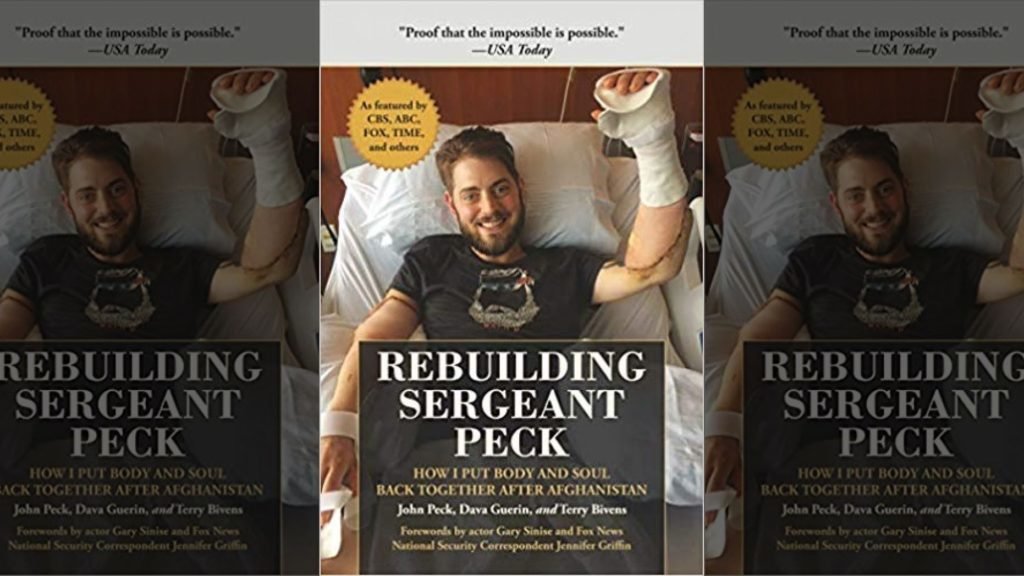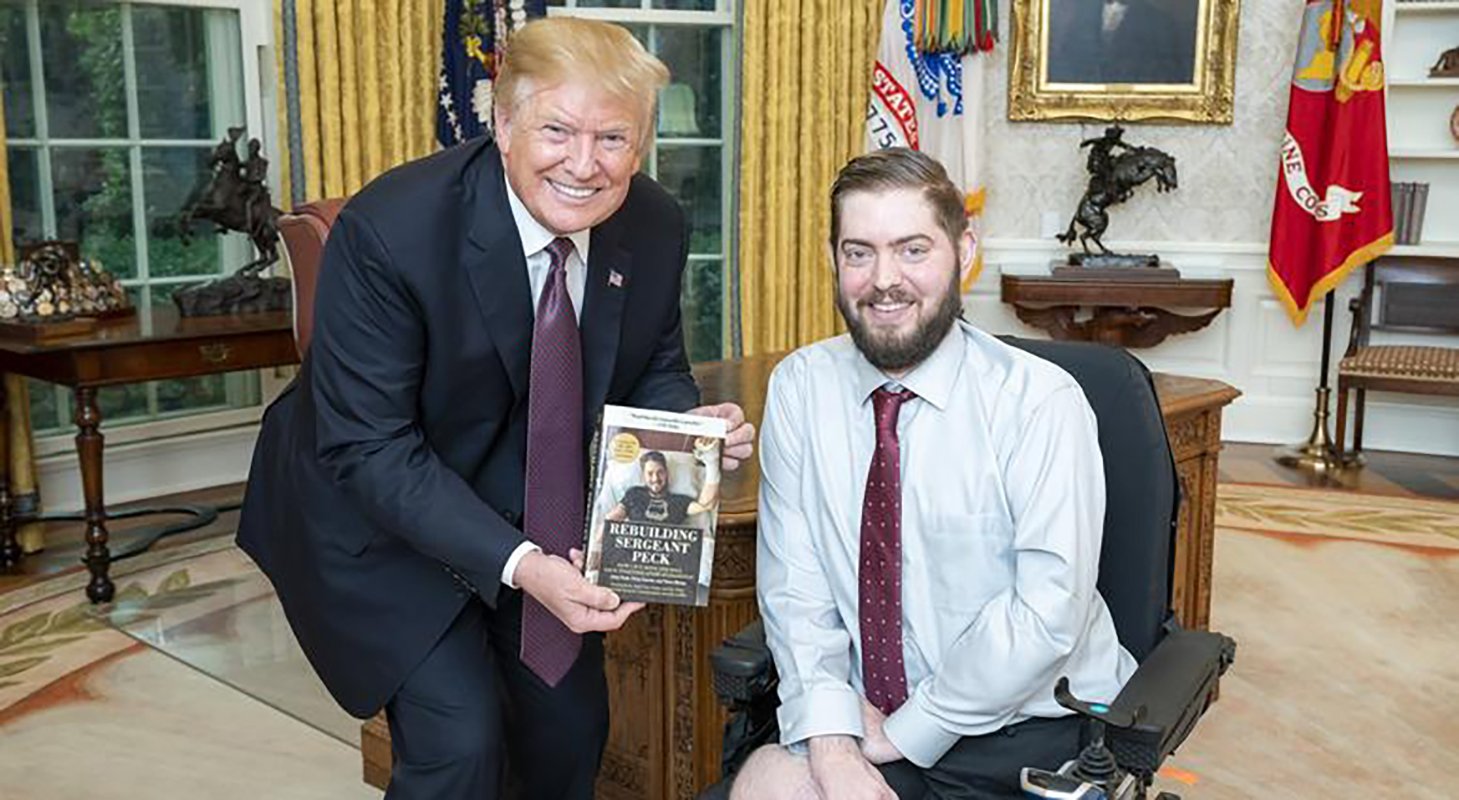
Photo courtesy of President Donald J. Trump’s Twitter account.
In 2007, U.S. Marine Sergeant John Peck was on his first deployment to Iraq. He was manning a machine gun when his vehicle was struck by an improvised explosive device (IED). Peck was thrown from his seat, and his face slammed into the gun. He sustained a severe traumatic brain injury.
He didn’t let that cut his military career short though. After enduring an arduous recovery process and regaining his faculties, Peck reenlisted and returned to the fight. He deployed again, this time to Helmand Province, Afghanistan. It was 2010 — the bloodiest year of that war to date. While patrolling one day, Peck stepped on yet another IED. This time it resulted in a three-month coma.
He woke up in a hospital bed at Walter Reed Medical Center missing both legs and one arm. Shortly after, he lost his remaining limb to infection.
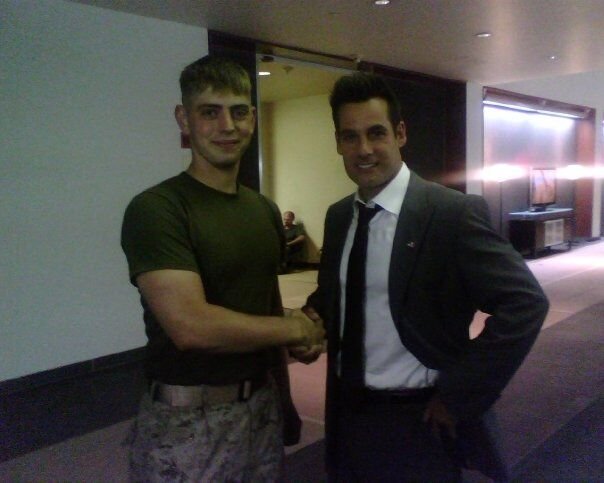
Peck’s recovery would be even more difficult than what he experienced with his first battlefield injury. This time he had to deal with conditions like aspergillus, a flesh-eating fungus, making him hyper-sensitive to the touch. Applying bandages or other critical care that involved physical contact with doctors was extremely painful.
Like many who have been wounded in combat, Peck’s battle was just as much mental as it was physical. In an interview with Coffee or Die, he recalled wondering, “How do you go from being a Marine to having no arms and legs? How do you live a fulfilled life?” The rehabilitation even challenged his will to go on at times. “There was a dark spot where I was suicidal,” he said.
Fortunately, his occupational therapist helped him see that he could still live a good life, despite his difficult situation. “While you might not be able to do exactly what you want, you can still do good,” his therapist said. “Get better with your prosthetics. Find a way to redirect your life.”
It was a turning point for Peck, and it helped him continue to push forward, picturing a better future for himself. A few explosions may have been enough to slow this Marine down, but they wouldn’t stop him.
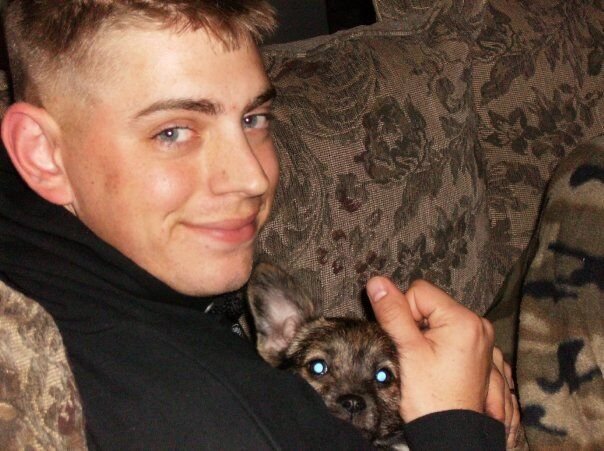
As the years went on, the quadruple amputee’s life became happier and more manageable. Peck loves the culinary arts, so when the possibility of an arm transplant became a reality, his dreams of getting back into the kitchen seemed like they might come true.
In August 2016, Peck received the arm transplant. “It gave me more independence,” he said. However, it didn’t take much time to realize that the surgery — as life-changing as it was — wasn’t quite like having his old arms and hands back. He soon realized that the grip strength required to pursue his ambitions in the culinary field just wasn’t there.
“I was really pissed off,” he said. Yet again, his hopes of a full life were crushed.
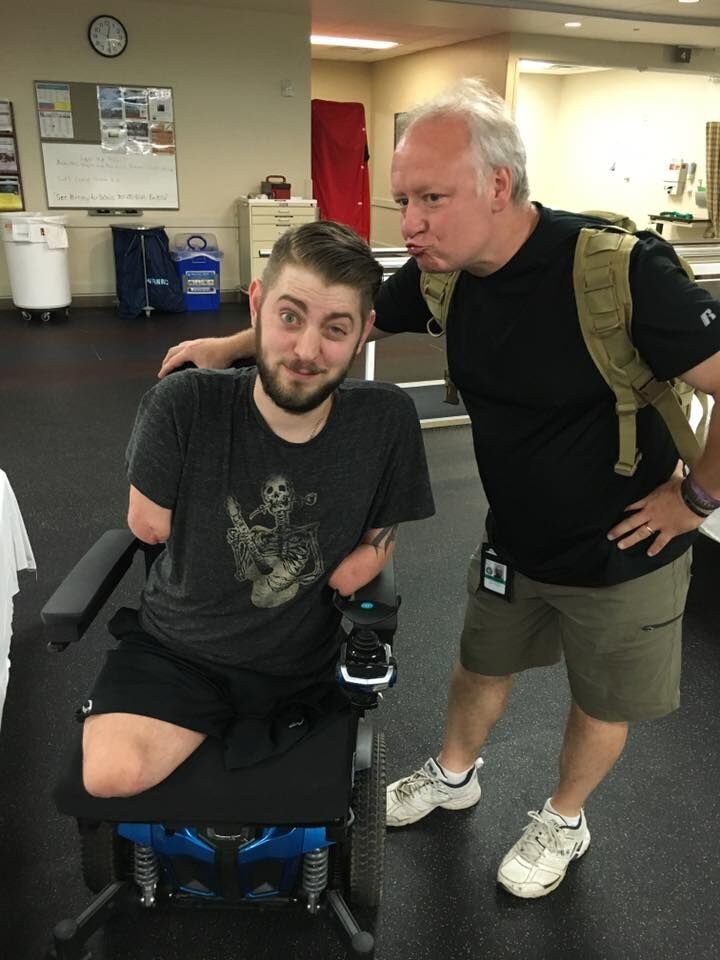
Peck’s wife encouraged him to find a new passion. Motivational speaking was mentioned, so he began to focus his attention on that pursuit. Before long, Peck began receiving notes from followers on his Facebook page, telling him that they had been suicidal and that he saved their lives.
“A guy was telling me that he was he was extremely depressed and suicidal,” Peck said, describing how the troubled man detailed his plan to go into the woods by his work and shoot himself. “I didn’t want to do it in the house,” he told Peck. “That way my family didn’t have to clean up or anything.”
When the man got up that morning, he made breakfast for his family — something he normally didn’t do. His wife, who had been reading Peck’s story, took note of the breakfast and that her husband was in a funk. She shared Peck’s story with him, and that ended up being the motivation he needed to keep living.
Peck recalled the man’s comments: “He said ‘You saved my life. Not figuratively — you literally saved my life.’”
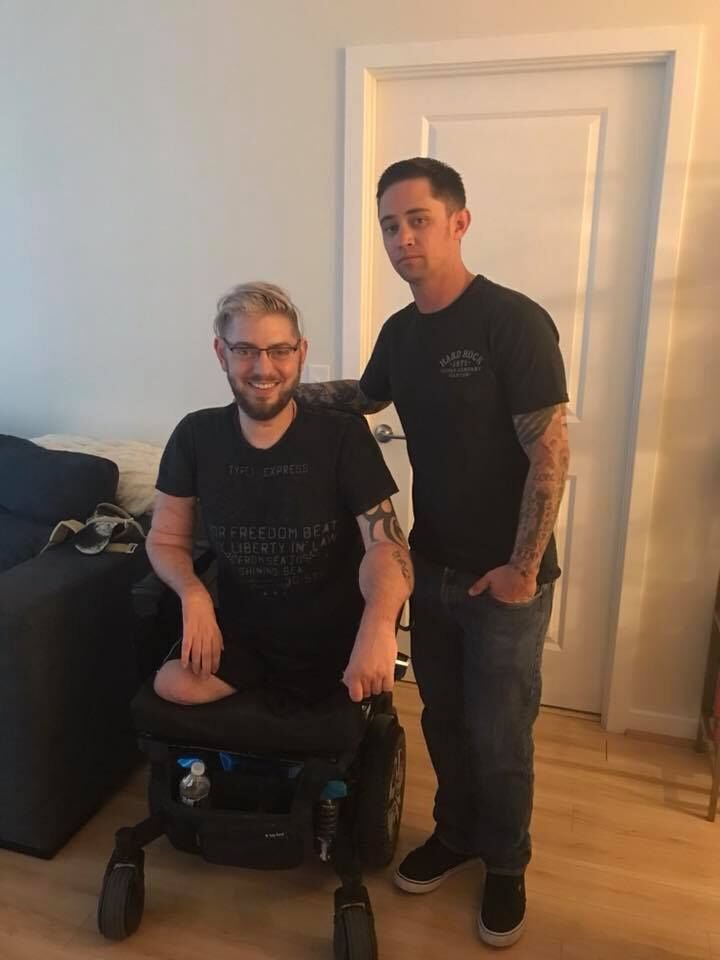
As Peck’s notoriety increased and his inspirational message proved to be effective, he was encouraged to write a memoir. At first, he didn’t want to write it because he didn’t want to be in the spotlight more than he already was. But he couldn’t deny the positive impact his story was having on people, so he changed his mind.
Peck’s book, “Rebuilding Sergeant Peck: How I Put Body and Soul Back Together After Afghanistan,” was released on May 7, 2019, and it details both his struggles and accomplishments.
Despite Peck’s success post-injury, he isn’t always smiling — and that’s okay.
“I’m not positive all the time. There are days where I am just like, ‘Don’t talk to me, leave me alone, let me play video games,’” he said. But then he remembers everything he has overcome. “The stuff that I’ve done since my injury outweighs my injury in general. To know that I helped save or improve five peoples’ lives — those are some big accomplishments.”
Peck encourages all veterans to be honest about their feelings and to address any negative emotions head-on.
“If you can weather the storm, it does get better,” he said. “Military people have this tendency to not seek help or to put our feelings in the pit of our stomach. That’s not healthy whatsoever. At any point, those demons are going to come back.”
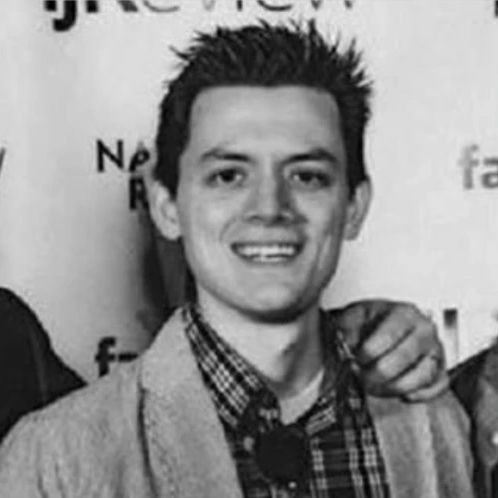
Justen Charters is a contributing editor for Coffee or Die Magazine. Justen was previously at Independent-Journal Review (IJ Review) for four years, where his articles were responsible for over 150 million page views, serving in various positions from content specialist to viral content editor. He currently resides in Utah with his wife and daughter.
BRCC and Bad Moon Print Press team up for an exclusive, limited-edition T-shirt design!
BRCC partners with Team Room Design for an exclusive T-shirt release!
Thirty Seconds Out has partnered with BRCC for an exclusive shirt design invoking the God of Winter.
Lucas O'Hara of Grizzly Forge has teamed up with BRCC for a badass, exclusive Shirt Club T-shirt design featuring his most popular knife and tiomahawk.
Coffee or Die sits down with one of the graphic designers behind Black Rifle Coffee's signature look and vibe.
Biden will award the Medal of Honor to a Vietnam War Army helicopter pilot who risked his life to save a reconnaissance team from almost certain death.
Ever wonder how much Jack Mandaville would f*ck sh*t up if he went back in time? The American Revolution didn't even see him coming.
A nearly 200-year-old West Point time capsule that at first appeared to yield little more than dust contains hidden treasure, the US Military Academy said.

